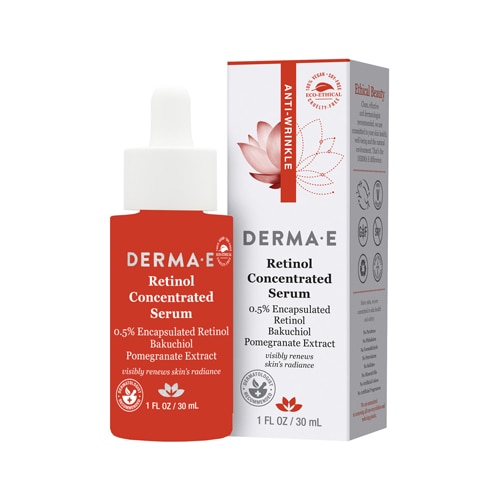While, technically,
face serums have been around in some form for decades, it’s only in the last several years that they’ve become uber-popular products to add to your skincare regimen – and for a good reason. They’re chockful of active and fast-acting ingredients that can improve your skin in a variety of ways.
But, while many people have heard of these wonder serums, they’re often confused about how to use them, when to use them, and how they fit in with their other skincare products. Read on to clear up any confusion so you can get to work on making your skin glow.
What is face serum?
Serums are lightweight, fast-absorbing, gel or liquid products. Serums don’t contain petroleum, nut, seed, mineral oils or thickening agents, which primarily leaves them teeming with concentrated doses of active ingredients such as antioxidants (vitamins C, E, and A), peptides, and retinol.
Depending on the ingredients, a serum can hydrate, reduce fine lines and wrinkles, fade dark spots, treat acne, and/or improve skin clarity. Because they don’t contain oils, they are quickly absorbed into your skin. If your skincare routine already seems endless, you may wonder if it’s worth adding another product. The answer for most people is: yes.
These lightweight liquids can penetrate your skin deeper and more effectively than probably anything you’re currently using. Most skincare products evaporate or sit on top of your skin.
How to choose the right serum
Sold on serums? First, you need to find one that addresses your skincare concerns. New York dermatologist
Josh Zeichner, MD, told WebMD, “There is a serum for virtually every skin type, and they give an extra level of treatment for specific skin needs.”
Vitamin C is a particularly multi-beneficial ingredient. Experts at Harvard Medical School say it can
prevent brown spots and stimulate new collagen growth. In addition, serums containing a combination of vitamins C, E, A and ferulic acid can brighten skin and improve overall skin clarity.
For general anti-aging benefits like fighting wrinkles,
fine lines and sagging skin, look for serums containing retinol, caffeine, green tea, and hyaluronic acid. And, for hydration and skin plumping, look for niacinamide, along with Vitamin C and hyaluronic acid.
How to use face serum
With so many skin benefits to so many serums, it can be hard to choose. Fortunately, you don’t have to pick just one. Instead, you can pick one to apply in the morning and another at night to maximize the benefits.
Serums containing antioxidant ingredients such as
vitamins C, E and A and ferulic acid are good choices to add to your morning skincare routine because they can combat free radicals (unstable atoms that can damage skin cells), increase sunscreen effectiveness and block the harmful effects of pollutants.
Ones with retinol and exfoliating acids, such as
alpha-hydroxy acid (AHA) and beta-hydroxy acid (BHA), are better for nighttime use because they can slough away dead, dull skin while you sleep but can also make your skin sensitive to the sun’s UV rays. Before getting started, read the label on your product and follow its directions.
Remember, serums are not replacements for your other skincare workhorses like
moisturizer or
sunscreen, even if they do have moisturizing qualities. Ready to pump up your skincare routine? Here are some general guidelines for adding these potent beauty-boosting products into your morning and evening skincare regimen.
Step 1
Cleanse your face with your favorite cleanser, and then pat or air dry.
Step 2
Apply serum all over your face and neck. In most cases, you’ll need a few drops, a few pumps, or a pea-sized blob to smooth over your dry skin. If you have sensitive skin, wait until your skin is completely dry before applying because some serum ingredients, such as vitamin C, can irritate the skin when wet. Let serum dry.
Step 3
After the serum has been fully absorbed into your skin, dab on some eye cream if you use one, and then slather on your moisturizer.
Step 4
In the morning, apply
sunscreen after your moisturizer. Don’t forget this step! Some serum ingredients can increase sun sensitivity. For your nighttime routine, skip the sunscreen, duh, and top with a retinol product of your choice -- if your serum or night moisturizer does not contain retinol. If it does, don’t double up on it. While
retinoid, a vitamin A derivative, is a great anti-aging ingredient that can boost collagen, fade dark spots and treat acne, too much retinoid can be irritating and inflammatory.
If your skincare routine looks slightly different than the one outlined above, don’t sweat it. A general rule when it comes to layering products is to start with the thinnest and lightest first and then layer heavier products on top so that every unguent can do its job.



